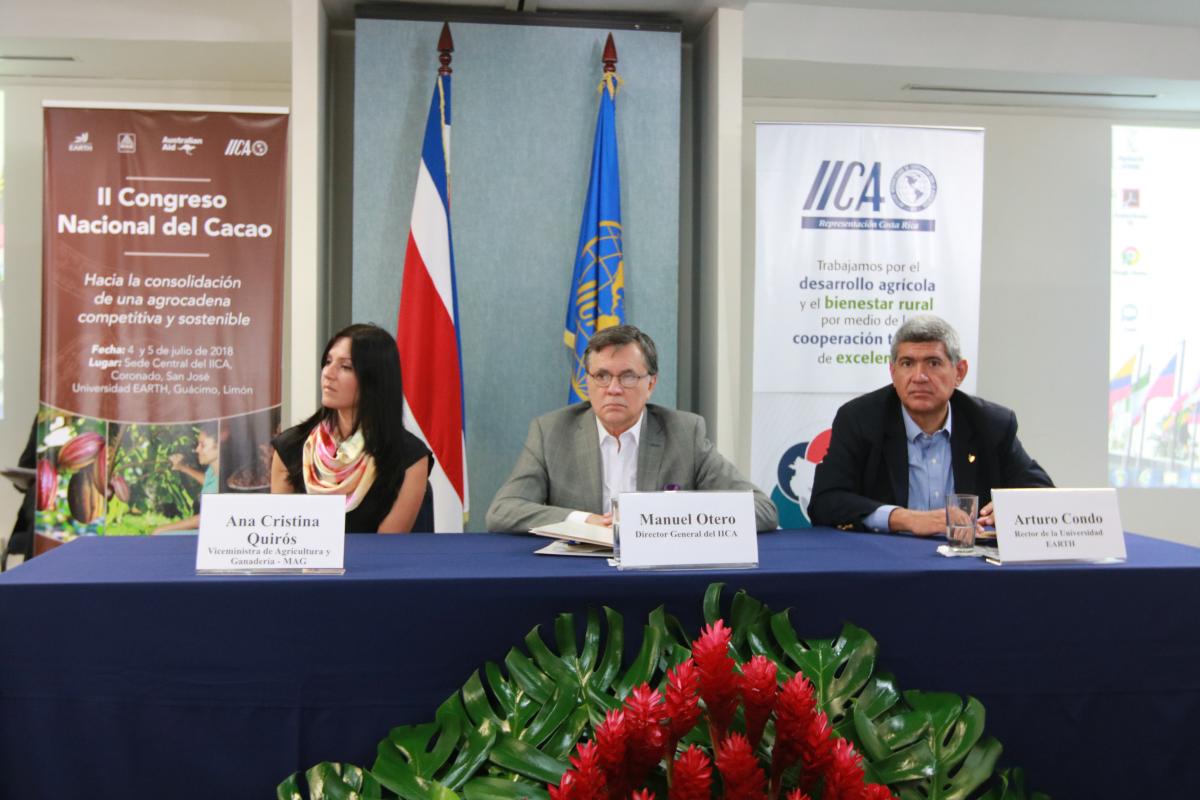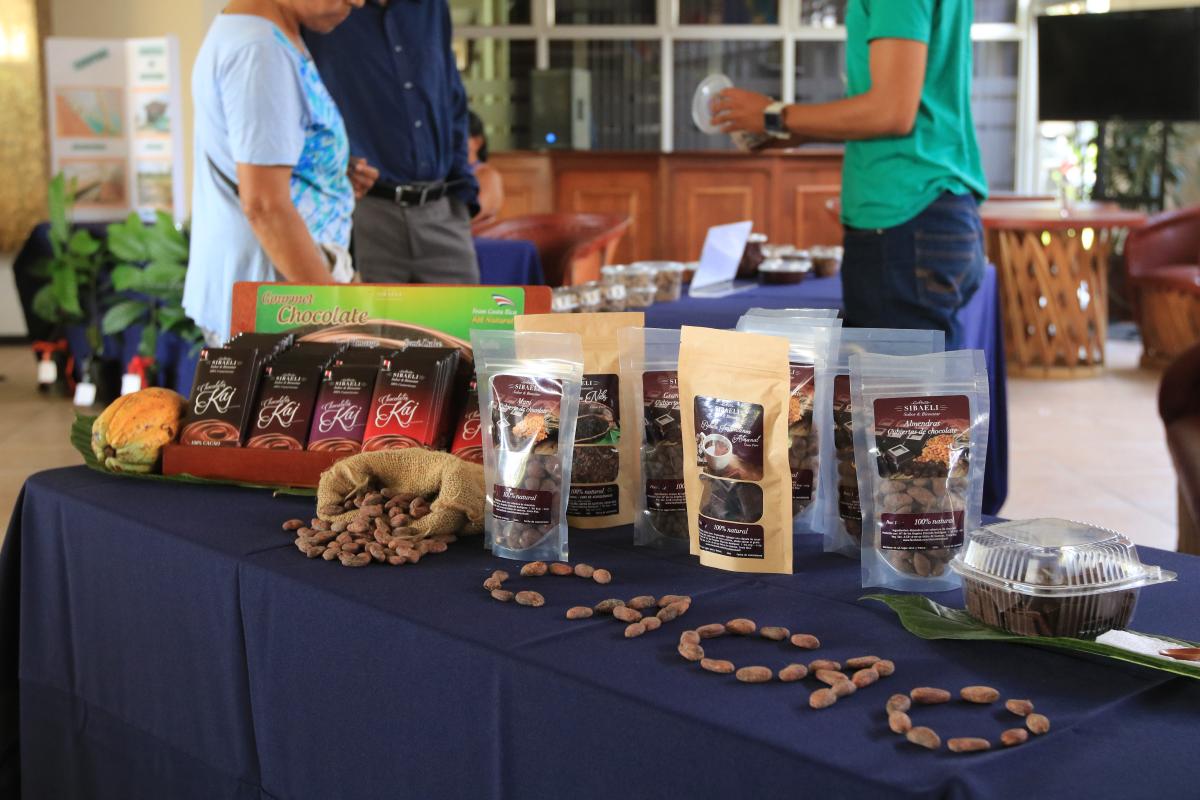IICA contributes to consolidating the cocoa chain in Costa Rica

San Jose, 5 July 2018 (IICA). The Headquarters of the Inter-American Institute for Cooperation on Agriculture (IICA) hosted the Second National Cocoa Conference in Costa Rica, which provided an opportunity for dialogue on the strategic vision for the 2018-2028 National Cocoa Plan. The plan will serve as a tool for guiding the actions of stakeholders in order to strengthen the competitiveness and sustainability of the agricultural chain.
Participants in the event discussed challenges in and proposals for developing the various chain links. The productivity link will aim to expand the cocoa farming area in order to develop an efficient foundation for production; the transformation link will promote improved fermentation and drying processes, while also driving value adding for cocoa and its derivatives; and the marketing link will seek to create opportunities to access national and international markets through product diversification.
Annual cocoa consumption in Costa Rica ranges from 2,000 to 3,000 tons; however, the country produces only 700 tons of cocoa per year. According to the National Agricultural Census carried out in 2014, close to 3,170 hectares are devoted to cocoa farming; the province of Limón accounts for the greatest number of hectares (1,560 ha), followed by Alajuela (920 ha) and Puntarenas (437 ha).
The conference was organized with support from the Australian Agency for International Development (AusAID). The Director General of IICA, Manuel Otero; the Deputy Minister of Agriculture and Livestock of Costa Rica, Ana Cristina Quirós; and the Director of the Agricultural School of the Humid Tropical Region (EARTH), Arturo Condo, participated in the event..
During his opening remarks, Otero stated that cocoa was an emblematic crop that represented the wealth of the Americas and Costa Rica in particular. “We must take advantage of this potential and think not only about the economic dimension, but also about the social and environmental dimensions. We must tell the world that our region has a cocoa sector that can supply global demands through an increase in cocoa productivity and differentiation,” he explained.
According to Quirós, cocoa production has always been of great importance to the country’s agriculture sector and especially in some rural areas; as a result, reactivation efforts are currently underway through various public policies. “We are committed to increasing and rehabilitating cocoa farming areas, as well as to strengthening the Cocoa Research and Technology Transfer Program,” he stated.
Condo, on the other hand, highlighted the fact that there are certain consumers who value cocoa and are willing to pay for it. “We must build and strengthen linkages between these consumers and producers. Costa Rica can achieve great recognition for its cocoa and value-added products, catapulted by its many other virtues as a country,” he said.

According to Esteban López, Consultant on Agribusinesses and Value Chains at IICA, the Institute hopes to continue supporting this process, with a view to ensuring that the cocoa chain will distribute its production benefits in a fair and equitable manner. “The goal is to improve the quality of life of all stakeholders involved in the chain,” he stated.
After the conference, the Inter-institutional Cocoa Committee will begin an analysis of the 2018-2028 National Cocoa Plan in order to launch its implementation. This committee brings together different stakeholders in the agricultural chain, including representatives of the public, private and academic sectors, as well as national companies that produce or market cocoa.
A Cocoa Fair was also carried out within the framework of the event to commemorate National Cocoa Day, which is celebrated on July 4 in Costa Rica. Cocoa producers, processors and traders from the Northern, Caribbean and Southern regions of the country exhibited and sold their products. Most of the participants represented small businesses led by rural women heads of households.
More information:
Esteban López, Consultant on Agribusinesses and Value Chains at IICA